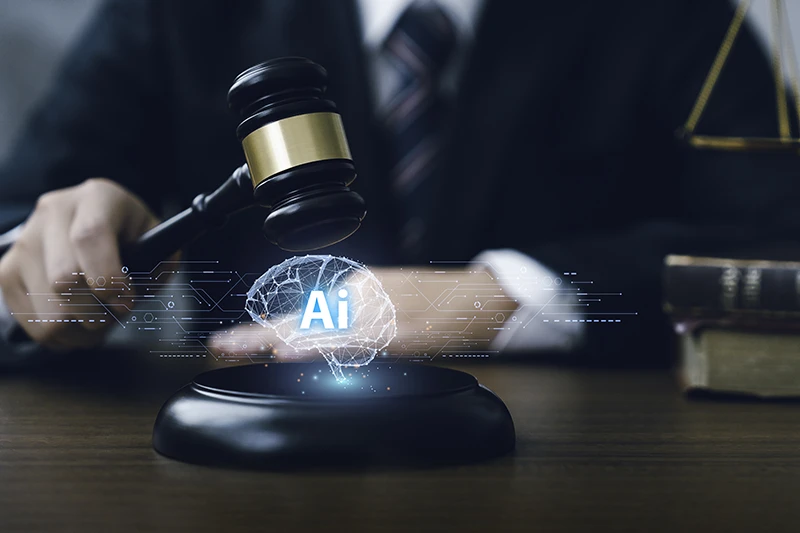AI’s Impact on Court Reporting Accuracy and Efficiency

Artificial Intelligence (AI) is making waves in countless industries, and the legal sector is no exception. As AI reshapes the traditional world of court reporting, many attorneys wonder what it means for the future of the legal field.
AI Court Reporting: Entering a New Era
AI court reporting strives for efficiency without sacrificing quality. Advanced algorithms are now being used to transcribe legal proceedings with remarkable speed. Unlike traditional stenography, which relies solely on human skill, AI-powered systems can process massive amounts of speech data in real time.
However, the best outcomes blend AI technology with experienced human court reporters. AI takes care of repetitive tasks, such as identifying speakers or formatting transcripts, but only human professionals can ensure the final document is accurate and legally sound.
Will AI Replace Court Reporters? Not So Fast.
While AI has advanced rapidly and will continue to do so, it’s unlikely that AI will ever replace court reporters. AI tools are powerful, but they lack the critical thinking and nuanced understanding that human court reporters bring to the table.
Court proceedings can be complex. Interruptions, overlapping speech, witnesses with accents, and legal jargon are common challenges that often require a human touch to interpret correctly. Plus, highly trained court reporters are skilled at ensuring transcripts are free from errors and misinterpretations.
Instead of replacing human professionals, AI acts as an assistant in court cases. It handles tedious tasks and improves productivity, freeing up court reporters to focus on producing accurate, high-quality transcripts.
Benefits of AI Court Reporting
Integrating AI into court cases benefits legal professionals in the following ways:
- Faster turnaround times: AI’s ability to process and transcribe data in real time speeds up the transcription process.
- Improved accuracy: AI tools can recognize speech patterns, filter out background noise, and even account for accents, minimizing transcription errors.
- Cost-effective solutions: Traditional court reporting services can be time-intensive and costly. Automating certain aspects of the transcription process reduces costs.
- Enhanced accessibility: AI-powered tools provide real-time transcriptions during legal proceedings so individuals with hearing impairments can fully participate.
- Data security: Modern AI court reporting tools operate on encrypted platforms to protect sensitive case information.
- Scalability for high-volume cases: Law firms that carry out a large number of depositions or hearings benefit from AI’s scalability. Whether processing hundreds of hours of testimony or handling multilingual cases, AI ensures consistency and efficiency at any scale.
Request Court Reporting Services in San Jose
Court reporting is just the tip of the iceberg when it comes to AI in the legal industry. From legal research to document review, AI is helping law firms optimize operations and deliver better results for their clients. At Talty Court Reporters, we utilize the latest technology to deliver the very best results in your legal case. Turn to us for top-quality court reporting and transcribing services, video and audio conferencing, remote depositions, and much more. For additional information about our services or to request a cost estimate, please contact us today.